 As of today, the College of Cardinals is composed of 252 members, of whom 138 are electors, and no less than 149 (almost 60% of the total) have been created by Francis, compared to 103 created by his immediate predecessors. During these twelve years of pontificate, we have witnessed a very high number of consistories and cardinal creations, many of which have involved prelates coming from remote regions of the world and the Church, or - as preferred today - from "peripheral" regions.
As of today, the College of Cardinals is composed of 252 members, of whom 138 are electors, and no less than 149 (almost 60% of the total) have been created by Francis, compared to 103 created by his immediate predecessors. During these twelve years of pontificate, we have witnessed a very high number of consistories and cardinal creations, many of which have involved prelates coming from remote regions of the world and the Church, or - as preferred today - from "peripheral" regions.
Apparently a way to give voice to those peoples who until now would have remained marginalized in the governance of the Church, in reality, upon a more serious and in-depth analysis, it becomes clear that this choice is part of a very precise strategy by Francis to favor, after his departure, the election of a pope "in his own image and likeness" who is capable and desirous of completing or at least continuing the work he has initiated, a profound neo-modernist revolution of the essence of the Catholic Church and in particular of the Papacy.
There are two effects that Francis has produced by creating so many "peripheral" cardinals. The first: the majority of cardinals today are not familiar with the complex curial power dynamics. The second: the members of the College, for the most part, do not know each other. This lays the groundwork for the second phase of the strategy: in the hope that the chosen cardinals feel "grateful" to Francis for the title received and aware that they are all, to varying degrees, aligned with the more progressive tendencies within contemporary Catholic theology, these cardinals should be encouraged, during the conclave, to unite and support the Francis Party of the College, those cardinals who actively carry forward the Bergoglian agenda, which, as we will see, is not as majority as it might appear.
Assuming, but not conceding, that the Francis Party is defeated in the conclave, it is appropriate to make a preface to our brief analysis of the Papabili. The Church, after the death of Bergoglio, will need a very courageous and strong pope, but above all, a young one, who knows how to resolutely remedy all the damage caused in these years.
To address this great lack of knowledge among the cardinals, the well-known Vaticanists Edward Pentin and Diane Montagna have undertaken a necessary and commendable work. The College of Cardinals Report is, in fact, an immersive and interactive site that allows one to learn in a concise but not superficial way the most important data about the College as a whole, as well as about the cardinals individually considered.
In this way, every cardinal can deepen their understanding of each profile of their most "prominent" colleagues and vote much more consciously. This site, if disseminated among the princes of the Church, could act as a buffer to the aforementioned strategy of Bergoglio. Please note: I am not saying these are the intentions of Pentin and Montagna, it's just my consideration.
Thanks to this invaluable tool, now accessible to anyone, we can identify 22 papabili cardinals, and among them, 12 particularly leading ones. If we were to imagine distributing these cardinals in a "parliamentary" manner, placing those most favorable to the preservation of Catholic Tradition on the right and the most radical neo-modernists on the left, we would obtain an image like this.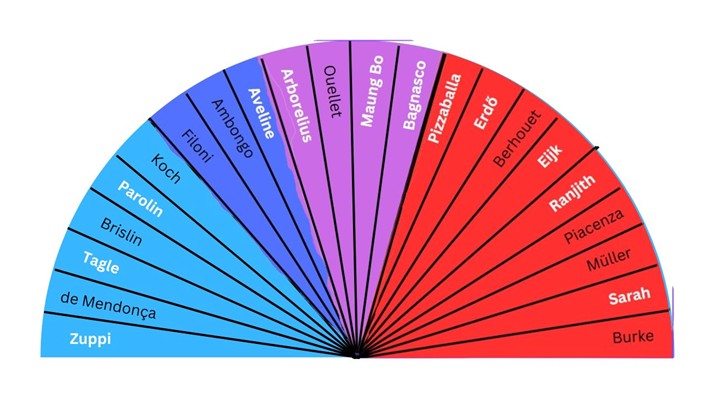 In red, I have highlighted the cardinals who are the most friends of Tradition. In purple, I have indicated the papabile cardinals who, while not explicitly or manifestly friends of Catholic Tradition (especially liturgical), can nevertheless be considered aligned with the Ratzingerian line and thus more conservative from a theological, moral, and pastoral point of view. As is evident, on the whole, traditionalists and conservatives form the majority, despite what one might think. This perhaps helps us understand better why Francis has decided to use the strategy previously explained.
In red, I have highlighted the cardinals who are the most friends of Tradition. In purple, I have indicated the papabile cardinals who, while not explicitly or manifestly friends of Catholic Tradition (especially liturgical), can nevertheless be considered aligned with the Ratzingerian line and thus more conservative from a theological, moral, and pastoral point of view. As is evident, on the whole, traditionalists and conservatives form the majority, despite what one might think. This perhaps helps us understand better why Francis has decided to use the strategy previously explained.
On the left side, we find the more progressive wing of the papabile cardinals. In the cobalt-colored segment, we find three cardinals who could be defined as “moderates,” very discreet in their assertions, but who are very likely sympathetic to the Francis Party. Finally, we find the Francis Party in the blue section, those whom Bergoglio has repeatedly indicated as his favorites and proteges (actually, his proteges have seen moments of greater and lesser favor from the incumbent over the years). Leading papabili names are in white bold characters.
Assuming, but not conceding, that the Francis Party is defeated in the conclave, it is appropriate to make a preface to our brief analysis of the Papabili. The Church, after the death of Bergoglio, will need a very courageous and strong pope, but above all, a young one, who knows how to resolutely remedy all the damage caused in these years. It will take, barring unforeseen circumstances, at least twenty years to put things right from a liturgical, doctrinal, moral, and legislative perspective, not to mention the management problems of the Vatican, the IOR, and many other serious issues that have arisen well before this pontificate.
Another element to consider is the widespread discontent among the cardinals. These twelve years have been difficult to manage even for those closest to the favorite of St. Gallen Mafia. One might thus consider the following: in the event of Francis' death, many cardinals who have so far appeared reserved and discreet may openly express their opposing positions.
If the cardinals want to pursue the true path of Catholic counter-revolution, they will need a young candidate, and in the current pool, very few would be suitable for this project, except perhaps Cardinal Pierbattista Pizzaballa (59 years old), also created by Francis. It is not excluded, therefore, that during the voting the cardinals may decide to look outside of this pool, towards some outsider, such as the very young Canadian Francis Leo (53 years old), also created a cardinal by Francis.
Another element to consider is the widespread discontent among the cardinals. These twelve years have been difficult to manage even for those closest to the favorite of St. Gallen Mafia. One might thus consider the following: in the event of Francis' death, many cardinals who have so far appeared reserved and discreet may openly express their opposing positions. For example, it is well known that Fiducia supplicans has caused great indignation and disappointment among the African cardinals who were initially very close to the Bergoglian agenda. In the event of Francis’ abdication (a possibility that should not be entirely ruled out), these cardinals might maintain a discreet profile, and in that case, the choice could fall on a "compromise" candidate, waiting for time to do its duty.
Traditionalist and Conservative Papabili
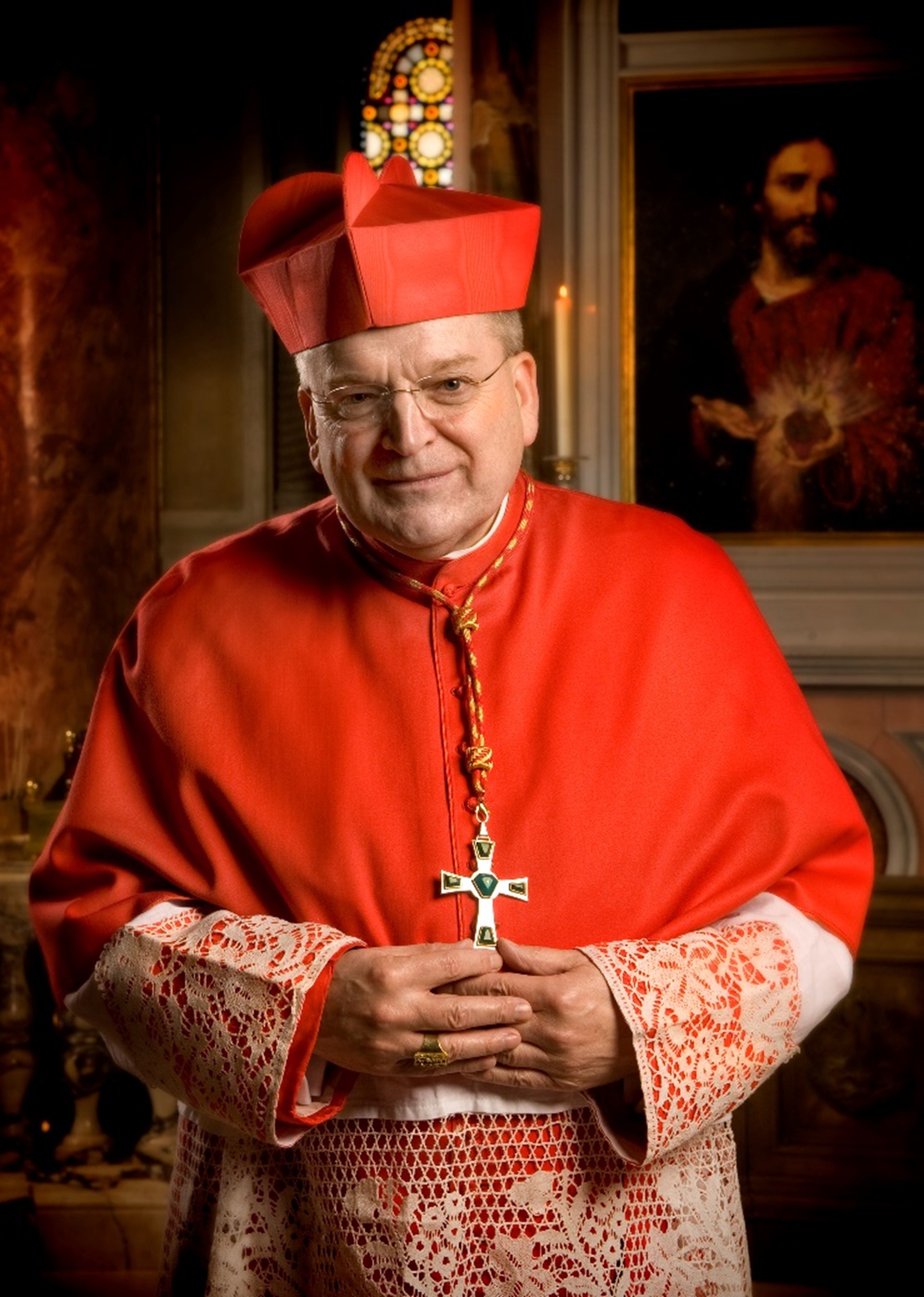 Let's start with the most traditionalist wing. Certainly the furthest to the right is the American cardinal Raymond Leo Burke, who needs no introduction. Firmly opposed to issues such as female diaconate, same-sex blessings, abolition of priestly celibacy, restriction of the Tridentine Mass, secret agreements with China, communion for remarried divorcees, and the overcoming of Humanae Vitae, his election as pope is nonetheless very unlikely. Recently, he has even expressed support for Donald Trump, which has surely annoyed a substantial portion of bishops and cardinals. Nevertheless, Burke will certainly have a prominent role in coordinating the anti-Francis Party, and this also explains the many attempts in recent years by the incumbent to limit and obstruct his actions.
Let's start with the most traditionalist wing. Certainly the furthest to the right is the American cardinal Raymond Leo Burke, who needs no introduction. Firmly opposed to issues such as female diaconate, same-sex blessings, abolition of priestly celibacy, restriction of the Tridentine Mass, secret agreements with China, communion for remarried divorcees, and the overcoming of Humanae Vitae, his election as pope is nonetheless very unlikely. Recently, he has even expressed support for Donald Trump, which has surely annoyed a substantial portion of bishops and cardinals. Nevertheless, Burke will certainly have a prominent role in coordinating the anti-Francis Party, and this also explains the many attempts in recent years by the incumbent to limit and obstruct his actions.
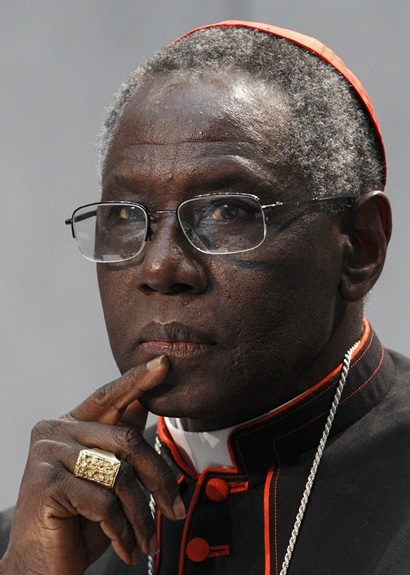 We then have the Guinean cardinal Robert Sarah, who is indicated among the twelve leading papabili by Pentin and Montagna's website. This is most likely due to his African origins: he would be the first African pope since Gelasius I, pope in the 5th century. The six-page article published by Paris-Match in July 2022 described him as a person of "enormous influence." Despite this, Cardinal Sarah has never made public statements indicating an active interest in becoming pope. Instead, he has continued to write, preach, and give interviews, focusing on the "defense of the faith." During the previous conclave, he was not among the main papabili candidates. However, it is known how much silent help Sarah provided to Benedict XVI to promote faithfulness to the Church's teachings, and perhaps this will be taken into account during the next conclave.
We then have the Guinean cardinal Robert Sarah, who is indicated among the twelve leading papabili by Pentin and Montagna's website. This is most likely due to his African origins: he would be the first African pope since Gelasius I, pope in the 5th century. The six-page article published by Paris-Match in July 2022 described him as a person of "enormous influence." Despite this, Cardinal Sarah has never made public statements indicating an active interest in becoming pope. Instead, he has continued to write, preach, and give interviews, focusing on the "defense of the faith." During the previous conclave, he was not among the main papabili candidates. However, it is known how much silent help Sarah provided to Benedict XVI to promote faithfulness to the Church's teachings, and perhaps this will be taken into account during the next conclave.
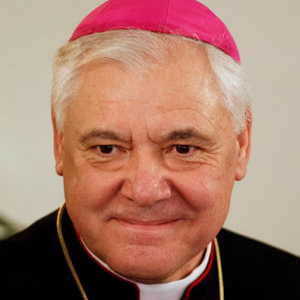
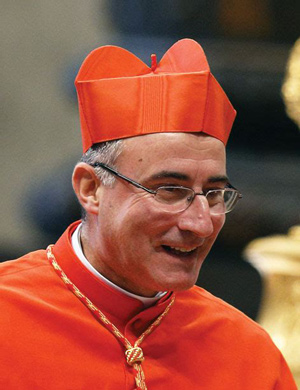 The Uruguayan Cardinal Daniel Fernando Sturla Berhouet is strongly aligned with the Ratzingerian line. He sees the fight against institutionalized secular culture and the growing spread of a Godless religious sentiment as a challenge for the Church. He often emphasizes the centrality of the Eucharist in the life of faith. He has expressed very harsh judgments against Fiducia supplicans, considering the document "ambiguous, divisive, and confusing." He is also very skeptical about synodality.
The Uruguayan Cardinal Daniel Fernando Sturla Berhouet is strongly aligned with the Ratzingerian line. He sees the fight against institutionalized secular culture and the growing spread of a Godless religious sentiment as a challenge for the Church. He often emphasizes the centrality of the Eucharist in the life of faith. He has expressed very harsh judgments against Fiducia supplicans, considering the document "ambiguous, divisive, and confusing." He is also very skeptical about synodality.
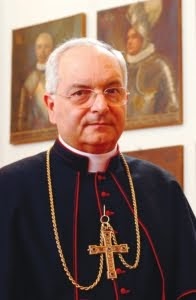 The Italian Cardinal Mauro Piacenza has demonstrated administrative abilities and a deep spiritual sensitivity, qualities that would make him suitable to lead the Church not only in Italy but globally. A defender of orthodoxy and highly regarded as a spiritual director for priests, although he has not yet publicly spoken about the issue of Traditionis Custodes, it is known that he is strongly opposed to any restrictions on the Tridentine Mass. A lover of doctrinal clarity, he has repeatedly emphasized the beauty and efficacy of the sacrament of Confession as a remedy for individual evils. Particularly relevant is the attention Piacenza pays to the reform of the clergy: he has often emphasized how important it is for priests to be well-formed in doctrine and updated on moral and bioethical issues. However, his advanced age (80 years) does not make him a leading candidate.
The Italian Cardinal Mauro Piacenza has demonstrated administrative abilities and a deep spiritual sensitivity, qualities that would make him suitable to lead the Church not only in Italy but globally. A defender of orthodoxy and highly regarded as a spiritual director for priests, although he has not yet publicly spoken about the issue of Traditionis Custodes, it is known that he is strongly opposed to any restrictions on the Tridentine Mass. A lover of doctrinal clarity, he has repeatedly emphasized the beauty and efficacy of the sacrament of Confession as a remedy for individual evils. Particularly relevant is the attention Piacenza pays to the reform of the clergy: he has often emphasized how important it is for priests to be well-formed in doctrine and updated on moral and bioethical issues. However, his advanced age (80 years) does not make him a leading candidate.
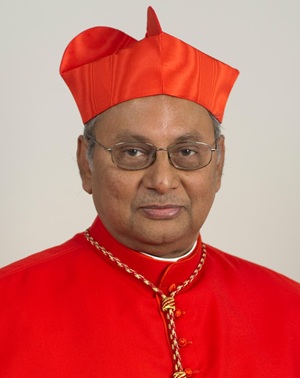 In contrast, we have the (perhaps less well-known) Sri Lankan Cardinal Malcolm Ranjith, who has held numerous roles over the years, from parish priest to bishop in various dioceses, from apostolic nuncio to curial official, and finally to metropolitan archbishop. A multilingual and experienced figure, some see him as perfectly aligned with Benedict XVI. His geographical origin is another factor in his favor: he comes from the Global South, specifically from Asia, an area where the Church is rapidly growing. Liturgically, he has favored elements such as the restoration of altar rails and the reception of Communion on the tongue while kneeling. He also shares with Pope Francis some pastoral elements, such as concern for the poor and climate protection (understandably, given his origins). This, however, is an additional element to consider him a potentially favored candidate even by those cardinals who are not traditionalists.
In contrast, we have the (perhaps less well-known) Sri Lankan Cardinal Malcolm Ranjith, who has held numerous roles over the years, from parish priest to bishop in various dioceses, from apostolic nuncio to curial official, and finally to metropolitan archbishop. A multilingual and experienced figure, some see him as perfectly aligned with Benedict XVI. His geographical origin is another factor in his favor: he comes from the Global South, specifically from Asia, an area where the Church is rapidly growing. Liturgically, he has favored elements such as the restoration of altar rails and the reception of Communion on the tongue while kneeling. He also shares with Pope Francis some pastoral elements, such as concern for the poor and climate protection (understandably, given his origins). This, however, is an additional element to consider him a potentially favored candidate even by those cardinals who are not traditionalists.
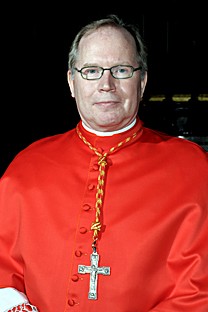 The Dutch Cardinal Willem Jacobus Eijk is considered another leading candidate for the papacy, thanks to several distinctive elements. A great expert in bioethical issues due to his medical and theological training, he is known for his adherence to Catholic doctrine and his willingness to defend it, even on unpopular issues such as Humanae Vitae and the indissolubility of marriage. He has also demonstrated great capability in the financial and pastoral reorganization of the dioceses where he has served, corrected liturgical abuses, and promoted new initiatives for young people. As an archbishop, he has faced the challenges of clergy sexual abuse, implementing inquiry commissions and assistance programs. Strongly Marian, he has spoken out against the ordination of women, blessings for same-sex couples, and gender theory.
The Dutch Cardinal Willem Jacobus Eijk is considered another leading candidate for the papacy, thanks to several distinctive elements. A great expert in bioethical issues due to his medical and theological training, he is known for his adherence to Catholic doctrine and his willingness to defend it, even on unpopular issues such as Humanae Vitae and the indissolubility of marriage. He has also demonstrated great capability in the financial and pastoral reorganization of the dioceses where he has served, corrected liturgical abuses, and promoted new initiatives for young people. As an archbishop, he has faced the challenges of clergy sexual abuse, implementing inquiry commissions and assistance programs. Strongly Marian, he has spoken out against the ordination of women, blessings for same-sex couples, and gender theory.
 The Hungarian Cardinal Péter Erdő is another leading candidate. Born and raised under the communist regime, Erdő has firsthand experience of what it means to defend religious freedom for Catholics. An esteemed canonist recognized internationally, his appointment as general relator for the synods on the family (2014 and 2015), a position traditionally reserved for a potential successor to the Pope, further increased his prestige. He is unanimously considered a man of balance and unity, capable of dialoguing with diverse positions within the Church. Although he prefers the Novus Ordo, he is willing to allow the Traditional form. Ultimately, Erdő seems the perfect candidate if the cardinals wish to elect someone who will continue the governance of the Church along the conservative Ratzingerian line without giving the impression of a sudden change of direction after Francis.
The Hungarian Cardinal Péter Erdő is another leading candidate. Born and raised under the communist regime, Erdő has firsthand experience of what it means to defend religious freedom for Catholics. An esteemed canonist recognized internationally, his appointment as general relator for the synods on the family (2014 and 2015), a position traditionally reserved for a potential successor to the Pope, further increased his prestige. He is unanimously considered a man of balance and unity, capable of dialoguing with diverse positions within the Church. Although he prefers the Novus Ordo, he is willing to allow the Traditional form. Ultimately, Erdő seems the perfect candidate if the cardinals wish to elect someone who will continue the governance of the Church along the conservative Ratzingerian line without giving the impression of a sudden change of direction after Francis.
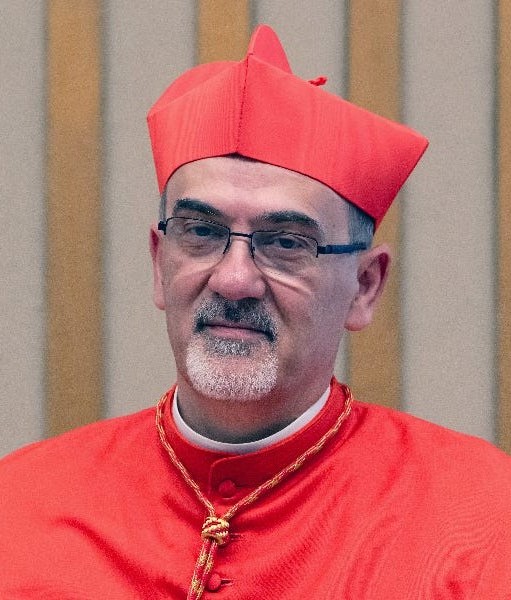 The already mentioned Italian Cardinal Pierbattista Pizzaballa is considered by some to be "too young," but perhaps this very element could favor him (let's not forget the logic that elevated the young Wojtyla to the Petrine Throne). His experience and his governance skills emerge from his long service in a crucial and complex region like the Holy Land. This experience gives him a balanced view and an ability to dialogue with the various religious and political communities present in the region. His biblical and linguistic training is another distinctive element. Considered a man of balance and openness, he is capable of combining faithfulness to Tradition with a careful look at modernity. His Franciscan spirituality and his attention to the poor and suffering are further elements that could make him appealing even to the members of the Francis Party.
The already mentioned Italian Cardinal Pierbattista Pizzaballa is considered by some to be "too young," but perhaps this very element could favor him (let's not forget the logic that elevated the young Wojtyla to the Petrine Throne). His experience and his governance skills emerge from his long service in a crucial and complex region like the Holy Land. This experience gives him a balanced view and an ability to dialogue with the various religious and political communities present in the region. His biblical and linguistic training is another distinctive element. Considered a man of balance and openness, he is capable of combining faithfulness to Tradition with a careful look at modernity. His Franciscan spirituality and his attention to the poor and suffering are further elements that could make him appealing even to the members of the Francis Party.
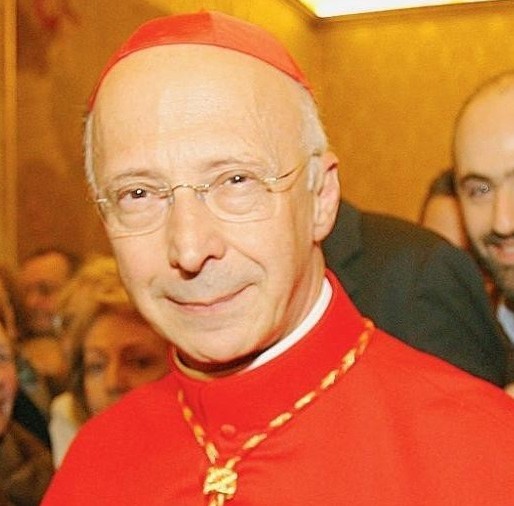 The profile of the Italian Cardinal Angelo Bagnasco, although no longer an elector (82 years old), seems perfect in case the cardinals decide to opt for a "transitional pope" who nonetheless carries forward a traditional approach and a conservative leadership after the internal divisions within the Church during the years of Francis. He possesses human and spiritual qualities that would make him an authoritative and respected figure.
The profile of the Italian Cardinal Angelo Bagnasco, although no longer an elector (82 years old), seems perfect in case the cardinals decide to opt for a "transitional pope" who nonetheless carries forward a traditional approach and a conservative leadership after the internal divisions within the Church during the years of Francis. He possesses human and spiritual qualities that would make him an authoritative and respected figure.
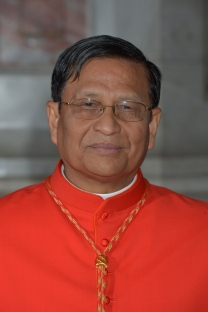 The Myanmar Cardinal Charles Maung Bo seems to be the ideal candidate for the election of a pope with strong pastoral experience in difficult contexts and a pastoral focus on human rights and social justice (this would be appreciated by the Francis Party) and a deep understanding of the challenges of the Asian world, which is becoming increasingly important in the life of the Church. However, Bo is also a staunch supporter of the synodality promoted by Pope Bergoglio. He believes in the importance of listening to the voice of all members of the Church.
The Myanmar Cardinal Charles Maung Bo seems to be the ideal candidate for the election of a pope with strong pastoral experience in difficult contexts and a pastoral focus on human rights and social justice (this would be appreciated by the Francis Party) and a deep understanding of the challenges of the Asian world, which is becoming increasingly important in the life of the Church. However, Bo is also a staunch supporter of the synodality promoted by Pope Bergoglio. He believes in the importance of listening to the voice of all members of the Church.
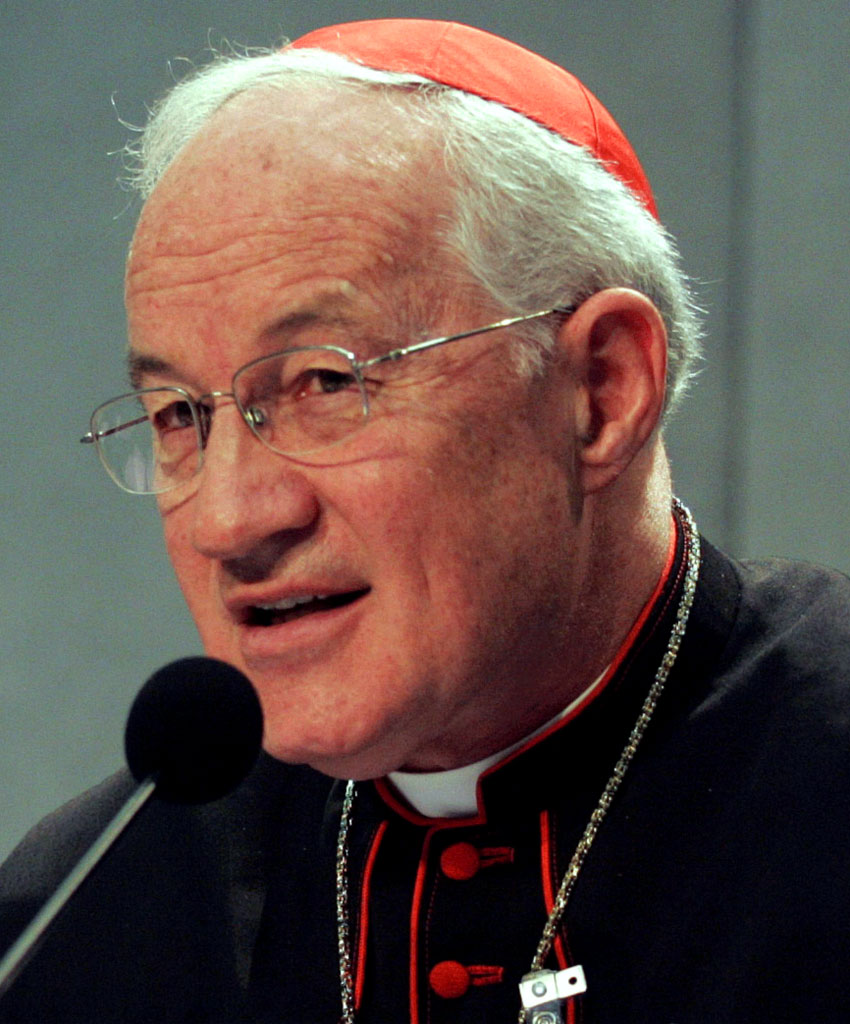 The Canadian Cardinal Marc Ouellet was a strong contender for the papacy during the 2013 conclave, but has seen his status as a leading papabile diminish in recent years. Factors that initially favored him included his vast experience in the Church due to his decade-long leadership of what is now called the Dicastery for Bishops. Considered a "conservative prelate with a modern vision," his commitment to unity and communion within the Church were additional elements in his favor. Liturgically, he has shown a particularly hostile attitude towards the Traditional liturgy under Francis' pontificate.
The Canadian Cardinal Marc Ouellet was a strong contender for the papacy during the 2013 conclave, but has seen his status as a leading papabile diminish in recent years. Factors that initially favored him included his vast experience in the Church due to his decade-long leadership of what is now called the Dicastery for Bishops. Considered a "conservative prelate with a modern vision," his commitment to unity and communion within the Church were additional elements in his favor. Liturgically, he has shown a particularly hostile attitude towards the Traditional liturgy under Francis' pontificate.
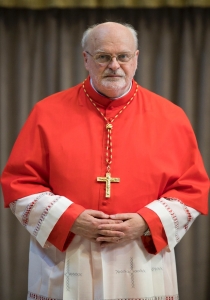 The Swedish Cardinal Anders Arborelius, praised by Francis in 2022 as "a person who can show us the way forward," is also a leading papabile. Known for his open and optimistic personality, he has extensive experience in serving the Church, having held several important positions, including President of the Scandinavian Episcopal Conference and member of various Vatican dicasteries. A strong promoter of interreligious dialogue (let's not forget that he is a Lutheran who converted to Catholicism), he is perceived as a very humble and selfless person: qualities greatly appreciated in a pope, especially after the Bergoglian experience.
The Swedish Cardinal Anders Arborelius, praised by Francis in 2022 as "a person who can show us the way forward," is also a leading papabile. Known for his open and optimistic personality, he has extensive experience in serving the Church, having held several important positions, including President of the Scandinavian Episcopal Conference and member of various Vatican dicasteries. A strong promoter of interreligious dialogue (let's not forget that he is a Lutheran who converted to Catholicism), he is perceived as a very humble and selfless person: qualities greatly appreciated in a pope, especially after the Bergoglian experience.
“Moderate" and Neo-Modernist Papabili
Let's turn to the other wing of the list of papabile. Let's start with the "moderate" modernists. These are three cardinals who have not expressed particular positions on controversial issues so far, but this cautious silence can be a deafening symptom of crypto-modernism.
 The French cardinal Jean-Marc Noël Aveline is considered by some to be Francis's protégé. His dedication to migration issues and interreligious dialogue resonates with the priorities of the current incumbent. It is known that the two regularly meet in the Vatican, outside of official hours, and he is particularly appreciated by left-wing political and ecclesiastical circles. Aveline, in the end, favors strong decentralization within the Church. Considering this last element and since - as mentioned at the beginning - the Francis Party has adopted the will of the St. Gallen Mafia to revolutionize the very conception of the Papacy, Aveline could indeed be a dangerous contender in the next Conclave.
The French cardinal Jean-Marc Noël Aveline is considered by some to be Francis's protégé. His dedication to migration issues and interreligious dialogue resonates with the priorities of the current incumbent. It is known that the two regularly meet in the Vatican, outside of official hours, and he is particularly appreciated by left-wing political and ecclesiastical circles. Aveline, in the end, favors strong decentralization within the Church. Considering this last element and since - as mentioned at the beginning - the Francis Party has adopted the will of the St. Gallen Mafia to revolutionize the very conception of the Papacy, Aveline could indeed be a dangerous contender in the next Conclave.
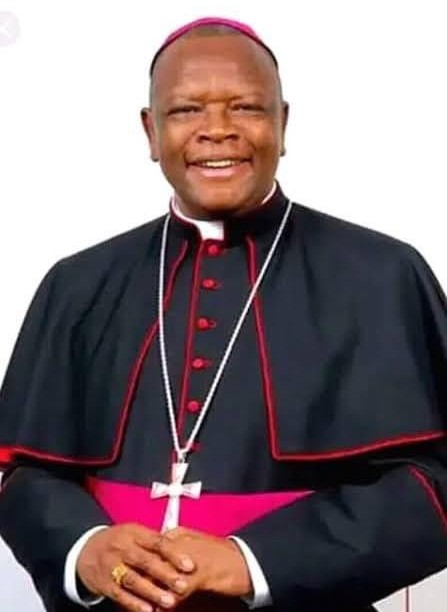 The Congolese Capuchin cardinal Fridolin Ambongo Besungu is a strong supporter of liturgical inculturation and the Zairean rite. After the promulgation of Fiducia supplicans, Ambongo rose to media prominence for strongly criticizing the document as inappropriate and even "Eurocentric." In Africa, indeed, there are entirely different problems than the blessing of same-sex couples. While defending the traditional values of the Church on issues such as family and priestly celibacy, he has shown openness to dialogue on other matters, such as the female diaconate.
The Congolese Capuchin cardinal Fridolin Ambongo Besungu is a strong supporter of liturgical inculturation and the Zairean rite. After the promulgation of Fiducia supplicans, Ambongo rose to media prominence for strongly criticizing the document as inappropriate and even "Eurocentric." In Africa, indeed, there are entirely different problems than the blessing of same-sex couples. While defending the traditional values of the Church on issues such as family and priestly celibacy, he has shown openness to dialogue on other matters, such as the female diaconate.
 The Italian Cardinal Fernando Filoni, although not among the leading papabili, is highly regarded for his extensive diplomatic and curial experience. There are also aspects that could hinder his election: in particular, he lacks experience in leading dioceses and is identified with the "old Italian bureaucratic guard." These characteristics, however, might make him the ideal safety candidate for the electing cardinals who wish to maintain the Church's status quo for some time.
The Italian Cardinal Fernando Filoni, although not among the leading papabili, is highly regarded for his extensive diplomatic and curial experience. There are also aspects that could hinder his election: in particular, he lacks experience in leading dioceses and is identified with the "old Italian bureaucratic guard." These characteristics, however, might make him the ideal safety candidate for the electing cardinals who wish to maintain the Church's status quo for some time.
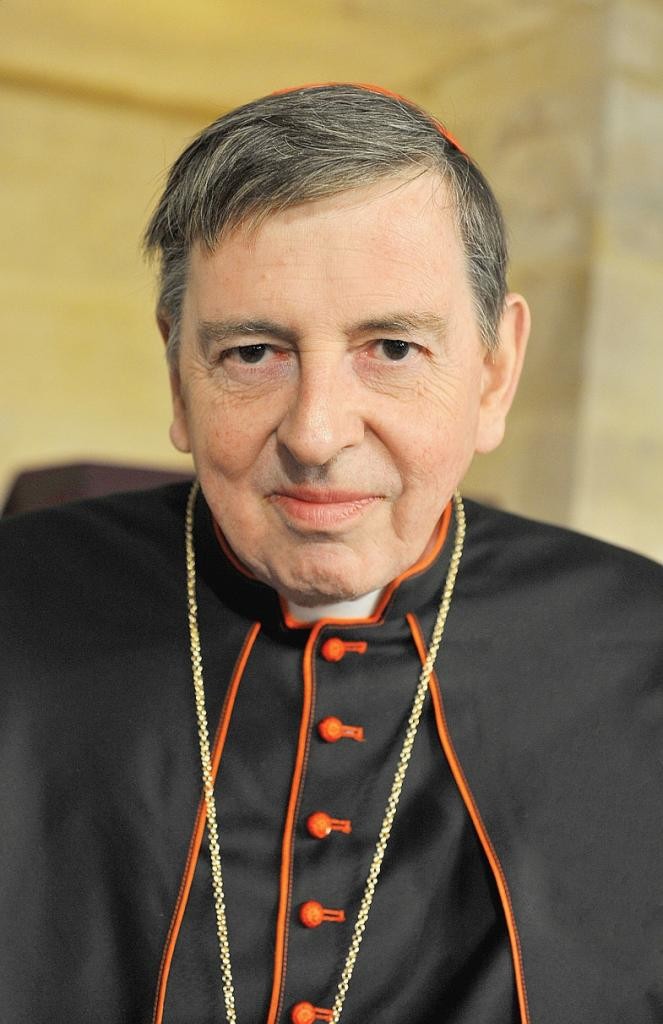 Thus, we enter the realm of true neo-modernists, revolutionaries at the forefront. The Swiss Cardinal Kurt Koch possesses a vast knowledge of the German-speaking Church and the theological challenges it poses, which is very crucial today, given the importance of maintaining the Church's unity in a German context very prone to divisions and schisms. He is known for his skepticism toward the German Synodal Path, which might garner the sympathy of some more conservative electors, but overall he is not a friend of Tradition: he has been ambiguous about the female diaconate over the years, while from a liturgical perspective he has repeatedly expressed support for a reconciliation of the Vetus and Novus Ordo, so as to have a single form as a (Hegelian) synthesis. In short, Koch presents many points of analogy with Ratzinger’s life: a progressive who has moderated over time but remains very much marked by modernist formation.
Thus, we enter the realm of true neo-modernists, revolutionaries at the forefront. The Swiss Cardinal Kurt Koch possesses a vast knowledge of the German-speaking Church and the theological challenges it poses, which is very crucial today, given the importance of maintaining the Church's unity in a German context very prone to divisions and schisms. He is known for his skepticism toward the German Synodal Path, which might garner the sympathy of some more conservative electors, but overall he is not a friend of Tradition: he has been ambiguous about the female diaconate over the years, while from a liturgical perspective he has repeatedly expressed support for a reconciliation of the Vetus and Novus Ordo, so as to have a single form as a (Hegelian) synthesis. In short, Koch presents many points of analogy with Ratzinger’s life: a progressive who has moderated over time but remains very much marked by modernist formation.
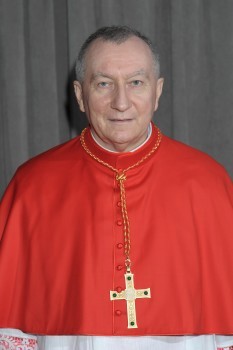 The Italian Cardinal Pietro Parolin is the current Vatican Secretary of State, a very prominent role in the Roman Curia. In recent years, he has often supported causes considered conservative within the Church, but it should not be forgotten that his acting has always been very revolutionary. Actually, Parolin would be the ideal candidate for a pontificate of full continuity with Francis, as he would pursue the same reforms, but in a less sensational and more diplomatic and pragmatic manner. Parolin is also seen as a protector of Ostpolitik, a strategy of collaboration with hostile powers through compromises and reconciliations, especially in relations with China. Indeed, he played a crucial role in re-establishing direct contacts between the Holy See and Beijing in 2005. Personally, I believe that - as of today - the chances of Parolin being elected as Francis's successor are very high. We must not forget, however, the ancient Roman adage that says, "He who enters the conclave as pope, leaves as a cardinal."
The Italian Cardinal Pietro Parolin is the current Vatican Secretary of State, a very prominent role in the Roman Curia. In recent years, he has often supported causes considered conservative within the Church, but it should not be forgotten that his acting has always been very revolutionary. Actually, Parolin would be the ideal candidate for a pontificate of full continuity with Francis, as he would pursue the same reforms, but in a less sensational and more diplomatic and pragmatic manner. Parolin is also seen as a protector of Ostpolitik, a strategy of collaboration with hostile powers through compromises and reconciliations, especially in relations with China. Indeed, he played a crucial role in re-establishing direct contacts between the Holy See and Beijing in 2005. Personally, I believe that - as of today - the chances of Parolin being elected as Francis's successor are very high. We must not forget, however, the ancient Roman adage that says, "He who enters the conclave as pope, leaves as a cardinal."
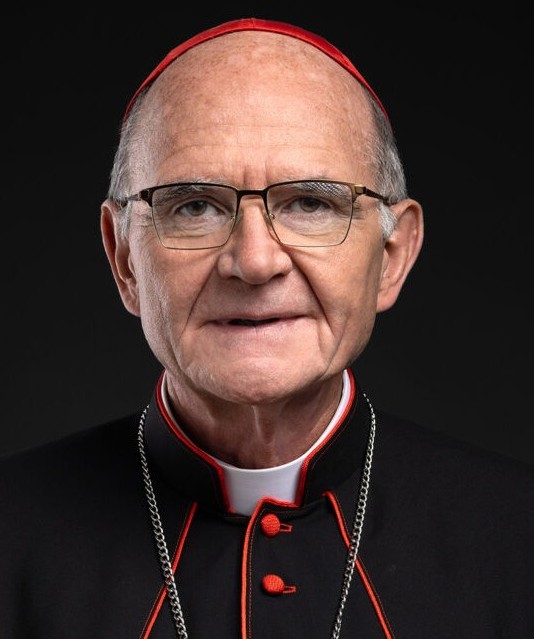 The South African Cardinal Stephen Brislin is apparently a less leading papabile compared to others, but he has acknowledged in the past that his election is “technically possible.” Strongly in favor of LGBT inclusion in the Church and the female diaconate, he considers Víctor Manuel Fernández, the current Prefect of the Dicastery for the Doctrine of the Faith, a "true giant with great intellect and experience." I don't think anything else needs to be added.
The South African Cardinal Stephen Brislin is apparently a less leading papabile compared to others, but he has acknowledged in the past that his election is “technically possible.” Strongly in favor of LGBT inclusion in the Church and the female diaconate, he considers Víctor Manuel Fernández, the current Prefect of the Dicastery for the Doctrine of the Faith, a "true giant with great intellect and experience." I don't think anything else needs to be added.
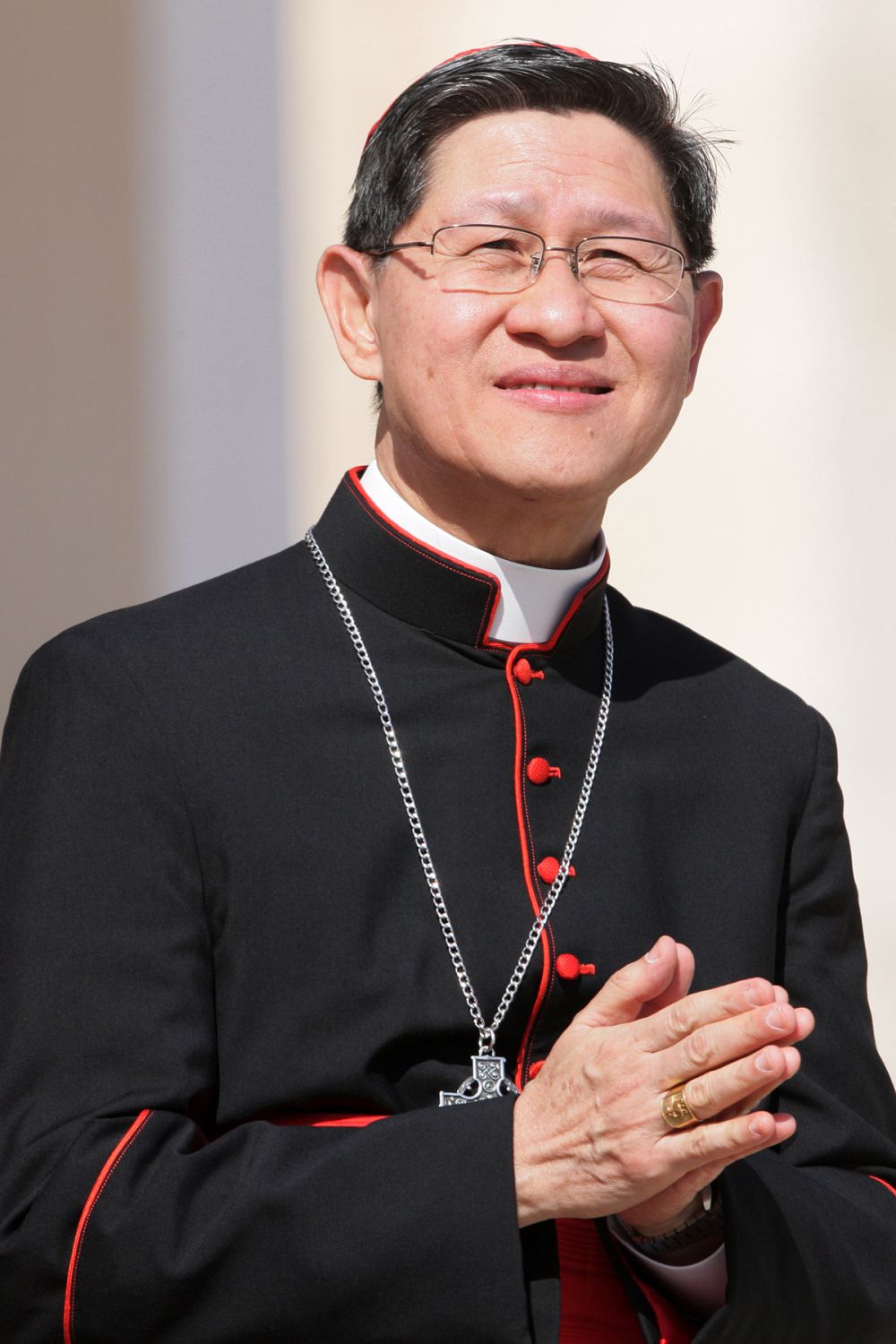 The Filipino Cardinal Luis Tagle has long been considered Bergoglio's protégé, so much so that he has been nicknamed "Asian Francis." In 2022, however, the incumbent interrupted his tenure as president of Caritas Internationalis following an independent review that identified shortcomings within the institution. These events fueled speculation that Cardinal Tagle had fallen out of favor with Pope Bergoglio. A member of the Bologna Theological School, which interprets the Second Vatican Council in full discontinuity with previous doctrine and practice, Tagle has expressed very "open" opinions on issues such as communion for non-sacramentally married couples and homosexuality, suggesting that universal moral principles may "not apply in all situations." Furthermore, he is a strong supporter of the secret agreements between China and the Vatican.
The Filipino Cardinal Luis Tagle has long been considered Bergoglio's protégé, so much so that he has been nicknamed "Asian Francis." In 2022, however, the incumbent interrupted his tenure as president of Caritas Internationalis following an independent review that identified shortcomings within the institution. These events fueled speculation that Cardinal Tagle had fallen out of favor with Pope Bergoglio. A member of the Bologna Theological School, which interprets the Second Vatican Council in full discontinuity with previous doctrine and practice, Tagle has expressed very "open" opinions on issues such as communion for non-sacramentally married couples and homosexuality, suggesting that universal moral principles may "not apply in all situations." Furthermore, he is a strong supporter of the secret agreements between China and the Vatican.
 The Portuguese Cardinal José Tolentino de Mendonça, although not a leading papabile, is considered a potential compromise candidate for the next conclave. Despite his relatively young age (59 years), he is very close to Francis. Electing cardinals who desire a very long and continuous papacy, certainly heterodox and modernist, with an even greater revolutionary impulse than Francis, might find this cardinal the ideal candidate. In a conclave, he is likely to gather votes among his Portuguese and Brazilian confreres, among whom he is said to have great influence. There would be much to pray for in the event of his election.
The Portuguese Cardinal José Tolentino de Mendonça, although not a leading papabile, is considered a potential compromise candidate for the next conclave. Despite his relatively young age (59 years), he is very close to Francis. Electing cardinals who desire a very long and continuous papacy, certainly heterodox and modernist, with an even greater revolutionary impulse than Francis, might find this cardinal the ideal candidate. In a conclave, he is likely to gather votes among his Portuguese and Brazilian confreres, among whom he is said to have great influence. There would be much to pray for in the event of his election.
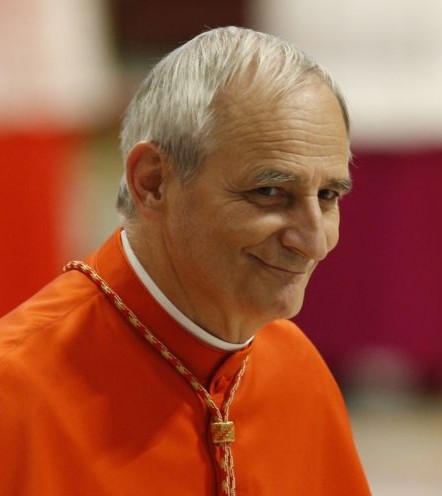 Finally, we have the Italian Cardinal Matteo Zuppi, who is literally the opposite of Cardinal Burke. While Burke has never hesitated to criticize progressive openings within the Church, condemning them bluntly and provoking animosity from much of the global episcopate (not only from openly modernist ones), Zuppi has been equally explicit in supporting the most radically neo-modernist positions of contemporary theology. In May 2022, he was elected president of the Italian Episcopal Conference. He has participated in several Vatican synods and considers synodality "fundamental" for renewing the Church. Although he has progressive inclinations, he seeks to dialogue with todos, todos, todos (‘everyone, everyone, everyone’), even with those who are theologically and liturgically conservative, and to keep channels open with those who favor the Traditional Liturgy (who knows if he would continue this approach as pope?).
Finally, we have the Italian Cardinal Matteo Zuppi, who is literally the opposite of Cardinal Burke. While Burke has never hesitated to criticize progressive openings within the Church, condemning them bluntly and provoking animosity from much of the global episcopate (not only from openly modernist ones), Zuppi has been equally explicit in supporting the most radically neo-modernist positions of contemporary theology. In May 2022, he was elected president of the Italian Episcopal Conference. He has participated in several Vatican synods and considers synodality "fundamental" for renewing the Church. Although he has progressive inclinations, he seeks to dialogue with todos, todos, todos (‘everyone, everyone, everyone’), even with those who are theologically and liturgically conservative, and to keep channels open with those who favor the Traditional Liturgy (who knows if he would continue this approach as pope?).
Latest from RTV — HELL in the HOLY LAND: Israel's Bishops Speak Out on Gaza





